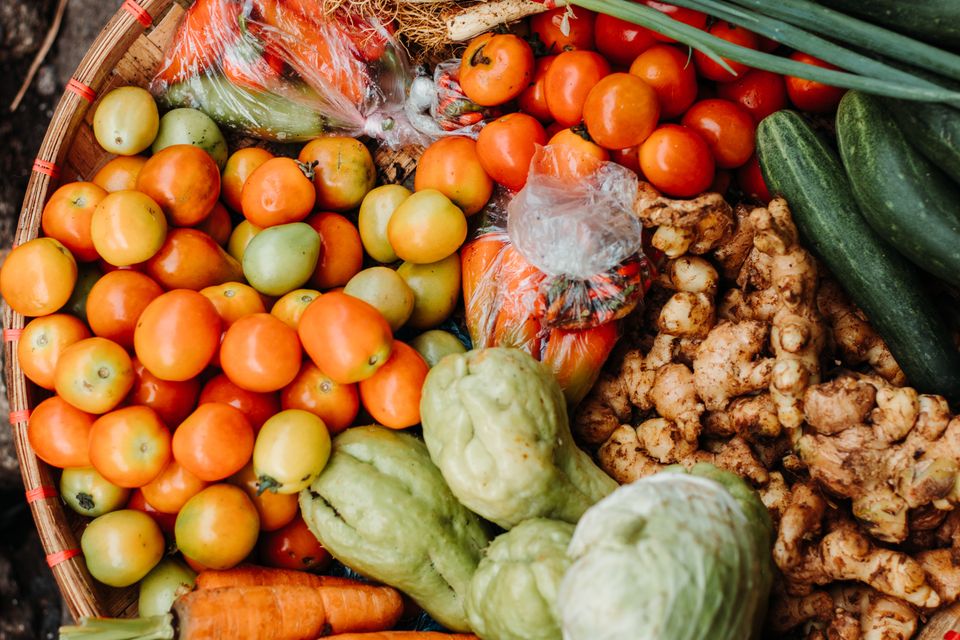2 Weeks Vegetarian

In full disclosure, I had 1 hamburger over the weekend at my 2-week Vegan mark.
I don't hold it against myself, that way lies peril. I'm still going strong in general with my new whole food plant based lifestyle. Now that it's been two weeks, I thought I'd share some things I've found that may be helpful to some others out there.
General Update
I feel good. From time to time I get a strong craving for meat, or added salt, and I'm still trying to stay away from directly adding salt into anything I'm making. This kind of constraint on ingredient choices has fostered creative solutions to different problems. As an aside, I love what constraint can do to creativity just out of the necessity of wanting to get something done, in any domain. Constraint exists in any industry, but it comes up again in again when working with varied clients where I work. Constraint drives innovation and creative solutioning.
In this case, the constraints I'm going by are:
- No meat products or by-products in the food.
- As minimally processed ingredients as possible in most cases.
- No salt added.
- No sugar added.
- No oil added (most of the time)
These constraints have been mostly okay. As the daily-driver of what I eat and what I prepare, it's been fantastic. As someone who loves vegetables and fruits, it's been relatively easy to switch to snacking on carrots, celery, cucumbers, tomatoes, apples, etc.
There have been problems I've overcome, though, when it's come to trying to hit certain flavours that become difficult with no oil or salt.
Tips and Tricks from Problems Faced
- Salt has been the largest issue. My craving for it has lessened as I've begun tasting it more in things, but there have been some ways I've overcome this issue.
- Nori. Nori is fantastic. Nori is seaweed, and if you're not adding iodized salt to anything and you're also not eating fish, that you should add some nori. It isn't super strong in sodium, but I find the taste adds that umami flavour that I often really want.
- I will sometimes add things that have salt in them into the thing I want to be saltier. Sauces, mostly, at this point. That means hummus maybe.
- I'll contrast the natural salt within whatever dish I'm building with other flavours to help both stand out. Like lemon, or vinegar. Something 'bright'. Vinegar has become an important flavour creator.
- Sundried tomatoes.
2. Natural peanut butter as a base for sauces on noodles.
3. Dried mushrooms added to broths.
4. Balsamic vinegar to add a little sweetness.
5. Blended dates and warm water to use as a swetener instead of just white sugar. Gives you the fibre of the fruit along with the sweet. While it's distinctly flavoured, it's a nice sweet add to things like salad dressings, or other sauces that need a kick of sweet.
6. I add ground flax to most saucy/soupy things to add thickness and nutrition. It doesn't add a lot of flavour, but takes on the flavour of what you put it in. It does add a bit of texture sometimes. This has saved some more watery sauce failures while adding some good stuff.
7. Nutritional yeast. Yeah, it needs a rebrand, but it's super tasty added to sauces as well. Adds a kind of flavour you might get if you had added parmasean to your sauce, for example. When added to salad it's not quite as parmaseany, but not unpleasant.
8. Seeds and nuts. Added to things all willy nilly. Salads and greens especially. Apparently our bodies get the most out of a lot of the good stuff in green things and red things if you add fat. Often people will use an oil based salad dressing, for example. Another way is to add some nuts, and you don't need much to get that benefit.
9. Did you know that frozen brocolli is missing some of the good stuff? One of the enzymes that they're thinking is the culprit for much of the benefit of cruciferous vegetables like Brocolli, cabbage, kale, etc, is activated by chopping, and takes 45 minutes to be created by two other enzymes that brocolli has that react with each other. So if you're going to steam your fres kale, brocolli, or other cruciferous vegetable, chop it and let it sit before you cook it. Cooking and freezing both kill one of the enzymes that reacts with the other.
That's it for now. Things are going well. I'll probably have less to say next time, but for now, things are going well.
Peace,
Shane
